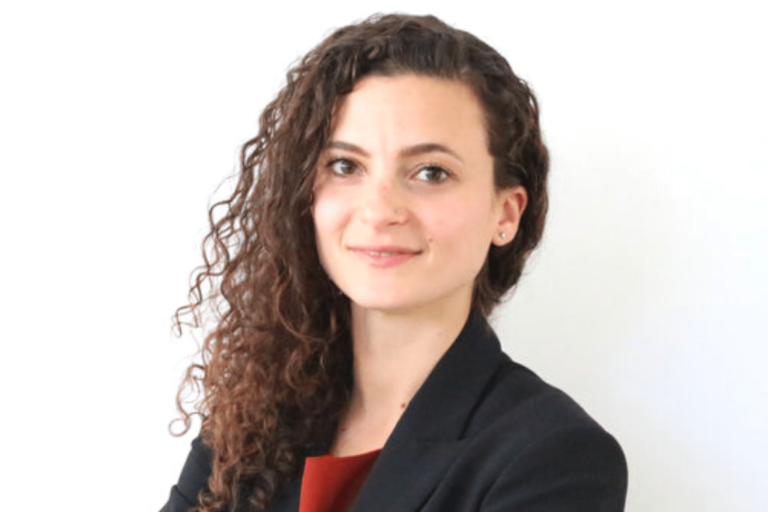
By Shannon Dooling
WBUR
It’s been a year since federal immigration authorities re-started what’s known as medical deferred action after quietly trying to eliminate it without any public notice.
Medical deferrals allow severely ill people who don’t have legal status in the U.S. — and who can’t access adequate health care in their home countries — to temporarily stay here while receiving what’s often life-saving treatment.
But, attorneys in Boston and throughout the Northeast worry the humanitarian policy is once again under silent attack.
‘The Secrecy Is The Problem’
The Trump administration’s efforts last year to quietly phase out medical deferrals created a national uproar.
Several Boston residents seeking treatment for things like cystic fibrosis and cancer faced possible deportation. Emergency Congressional hearings were called and, a month later, when federal immigration authorities agreed to reopen the process, immigration attorneys, like Boston-based Annelise Araujo, were cautiously optimistic.
But a year later, Araujo says that optimism has faded.
“We have no knowledge as to why these cases are being denied and the secrecy is the problem.”
Araujo says until now, she’s never had a request for medical deferred action denied by U.S. Citizenship and Immigration Services (USCIS) — the agency processing these requests.
“We have no knowledge as to why these cases are being denied and the secrecy is the problem.”
ATTORNEY ANNELISE ARAUJO
It’s a case she says, based on past experiences, has all the merits for an approval.
“If [USCIS is] being more strict, if they have a standard that they are following, then they should disclose this to attorneys. They should specify the reasons for their denials,” says Araujo.
Her clients, a mother and father from Brazil, overstayed their visas. Their 5-year-old son — who is a U.S. citizen — receives specialized treatment for severe autism spectrum disorder. It’s care, the family says, would not be available to them in their home country.
Since their medical deferred action was denied, they now live with the fear and uncertainty of potential deportation.
And they’re not alone.
‘It’s Scarier Than Having A Surgery’
Serena Badia (left) was born in Spain and receives specialized cardiac treatment at Boston Children’s Hospital. She and her mom, Conchita, both worry she won’t be able to continue her treatments if her renewal of medical deferred action is denied. (Shannon Dooling/WBUR)
Serena Badia and her mom agreed to meet outside in a park nearby their Brookline home. We’re all wearing masks and Serena is bundled up in a fluffy white fleece jacket, the Boston Children’s Hospital logo stitched into the chest.
The 15-year-old explains she was born without the pulmonary artery, which is in the heart.
“I have an artificial artery and the hospital has to check if it’s, it’s too big or too small while I’m growing,” Badia says. If it’s too small, she’ll need open heart surgery to replace it.
Badia is accustomed to sharing her story by now. The teenager, who was born in Spain, stood before reporters and politicians last year in Washington D.C., asking for medical deferred action to be reinstated.
Her request was eventually approved, but now she’s facing another deadline. Her medical deferred action expires at the end of November and she and her mom worry it may not be renewed.
“It’s scarier than having a surgery because if I go back to Spain, I won’t be able to return to have follow up on my treatment,” Badia says.
Massachusetts Sens. Elizabeth Warren and Ed Markey, along with Congresswoman Ayanna Pressley, requested detailed information from USCIS in April after hearing from constituents concerned about the status of medical deferred action.
Data shared with WBUR shows a steady decline in approved medical deferred action requests over three fiscal years.
According to USCIS, field offices handled 704 requests in 2018, granting 315 (about 44%). Those numbers dropped in 2019 to 411 requests and 119 approvals (28%).
As of May 2020, 372 requests for medical deferred action yielded only 41 approvals (11%).
In a joint statement, Warren, Markey and Pressley called the downward trajectory of approvals cruel. The statement, in part, reads:
One of the most sinister changes at UCSIS under the Trump administration can be seen through the slow down and denials of ‘deferred action’ requests for our immigrant neighbors with serious medical conditions who require continued treatment in the United States.
‘We’ve Always Been Skeptical’
Anthony Marino is director of immigration legal services at Boston-based Rian Immigrant Center. He says they have received a handful of approvals for medical deferred action requests in the last year. But, there are also cases filed in 2018 still waiting for decisions.
For Marino, it’s the continued lack of communication from the federal government that he finds so troubling.
“It’s clear that something within the program has changed,” says Marino. “You know, you combine that with what we’re hearing from around the country with a string of denials. This is kind of what we feared, from the time that they claimed to be reinstating the program, we’ve always been skeptical.”
That skepticism is shared by immigration attorneys throughout the Northeast.
The New York-based LegalHealth, a program of the New York Legal Assistance Group, has been filing medical deferred action requests on behalf of severely ill clients for more than a decade.
Norma Tinubu is a supervising attorney at LegalHealth and says not only are seriously ill clients receiving denials, the federal government is actively trying to remove some of them from the country.
“We’ve never had a situation like we do now, where we have five clients who have been sent ‘notices to appear’ for what essentially is deportation proceedings. So, this is kind of unprecedented for us,” she says.
Tinubu says receiving a notice to appear means clients risk waiting in a crowded immigration courtroom, during a pandemic, while suffering from chronic or terminal illness.
“So, clearly when the facts have not changed at all and the decision is the opposite, something larger is at play, unfortunately, than just adjudicating the cases on the facts.”
ATTORNEY AUDREY ALLEN
In Philadelphia, immigration attorney Audrey Allen represents primarily sick children whose families are seeking medical deferred action to remain in the country for things like cancer treatment and cardiac care.
Allen says since medical deferrals were reopened a year ago, most of her clients have been denied. Even two clients who had been approved in previous years had their renewals denied, she says.
“So, clearly when the facts have not changed at all and the decision is the opposite, something larger is at play, unfortunately, than just adjudicating the cases on the facts,” Allen says.
In an emailed statement, USCIS spokesperson Dan Hetlage said guidance to the different USCIS field offices — where the requests are processed — remains a “completely discretionary process, with requests determined on a case-by-case basis, absent established eligibility criteria.”
USCIS is facing a lawsuit filed in Boston’s federal court. Advocates hope the case will provide more clarity around medical deferred action; clarity that, up to now, attorneys say the federal government has not offered.
Originally published in WBUR on September 24, 2020.
The post ‘It’s Scarier Than Having A Surgery’: A Year Later, Uncertainty Around Medical Deferrals Remains appeared first on New York Legal Assistance.






